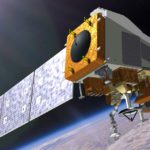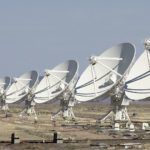Space impacts every facet of 21st century life. Business, governance, security, education, manufacturing, healthcare, communication, and more all rely on space-based infrastructure and the technologies derived from exploring and operating in space. With rapidly expanding space access, miniaturization of technology, growing scientific knowledge, and the enduring human desire to explore our universe, there has never been a more exciting or important time in space.
This Space Briefing Book is a primer and reference guide on the organizations, laws and regulations, technologies, and factors in modern space operations. It is designed to support and inform legislators and staff, journalists, and others whose work holds a nexus
to space.
The global space economy is worth hundreds of billions of dollars, and in the balance sheet of national priorities, space is a critical investment. It yields cascading dividends for job creation, technology transfer, expanded entrepreneurship, international partnerships, shared research and development, and much more. Indeed, space exploration and operation delivers wider opportunity than any effort on the planet — or beyond it.
Space Sectors
Space endeavors are grouped into sectors: civil, national security (i.e., defense and intelligence), and commercial. Each sector operates with its own goals and assets, although they all rely on a common space industrial base, workforce, and infrastructure.

Civil
Non-defense-related government space activities, including launching and managing satellites, conducting research, and exploring the solar system. In the United States, nearly all civil space missions are managed or run by NASA and NOAA.

National Security
The defense and intelligence sectors are commonly considered together as a “national security” sector. The U.S. Department of Defense oversees space missions in support of military operations, and several agencies in the U.S. intelligence community are involved in operating space assets for intelligence purposes to support military and law enforcement operations.

Commercial
All space-related endeavors — including goods, services and activities — are provided by private sector enterprises with the legal capacity to offer their products to non-governmental customers. Commercial space efforts range from satellite communication to space tourism.
Recent Space Briefing Book Posts
Space Policy Directives (SPDs) provide information on U.S. policies and procedures as they relate to space activities.
NASA is developing a new heavy-lift rocket, the Space Launch System (SLS). It is designed for space missions beyond Low Earth Orbit.
Tracking space weather is important because solar flares and sunspots can impact Earth’s space- and ground-based infrastructure and technology.
Satellites are foundational components of modern society, permitting communications, global positioning, Earth and solar system study, and a range of other activities.
Among U.S. regulations with a space nexus are those concerning the commercial space sector.
U.S. space activities and priorities are established, in part, through Presidential Executive Orders (EOs), Space Policy Directives (SPDs), and policies.
U.S. legislation of existing space-related laws are compiled in Title 51 of the United States Code.
The responsibilities for funding, overseeing and regulating U.S. space activities are spread across the Executive and Legislative branches of government.
There are a variety of defense and intelligence agencies within the U.S. Government whose work holds a nexus to space activities.
- « Previous
- 1
- 2








